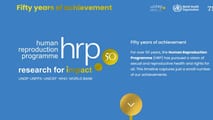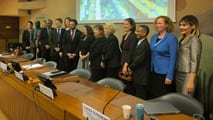The ECLJ Welcomes the ECHR Decision Affirming That There is No Right to Marriage or to Registered Partnership for Homosexuals under the European Convention of Human Rights
(Strasbourg, France) - In a case closely followed by the European Centre for Law and Justice (ECLJ), the Schalk and Kopf v. Austria case (n°. 30141/04) the European Court of Human Rights (ECHR) has affirmed today, in a 4-to-3 decision, that there is no right to marriage or registered partnership for homosexuals under the European Convention of Human Rights. The Court further affirmed that the Austrian government had not discriminated against the “couple” by not allowing two men to contract a marriage.
The Court unanimously reiterated that the right to marry is granted only to “men and women”, as set forth in Article 12 of the Convention. The Court observed that among Council of Europe member States “there is not yet a majority of States providing for legal recognition of same-sex couples. The area in question must therefore still be regarded as one of evolving rights with no established consensus” (§105). Consequently, the Court recognized that “national authorities are best placed to assess and respond to the needs of society in this field” (§62), and “States must also enjoy a margin of appreciation in the timing of the introduction of legislative changes”. Because “marriage has deep-rooted social and cultural connotations which may differ largely from one society to another, the Court reiterates that it must not rush to substitute its own judgment in place of that of the national authorities, who are best placed to assess and respond to the needs of society” (§62) and “that States are still free, under Article 12 of the Convention as well as under Article 14 taken in conjunction with Article 8, to restrict access to marriage to different-sex couples.”(§108)
As the careful wording of the decision implies, the Court keeps very open a possible recognition in the near future of a “human right” to legal recognition of same-sex couples. The Court says that States are “still free” to restrict access to marriage to different-sex couples, because there is not “yet” a majority of States providing for legal recognition of same-sex couples, that this question must therefore “still” be regarded as one of “evolving rights” that the States enjoy a margin of appreciation limited to “the timing” of the legal recognition, and that the Court should therefore not “rush” to substitute its own judgment in place of that of the national authorities.
In other words, the Court prudently renounced, although only for the moment, to force National States to accept the legal recognition of same-sex couples.
Dr Gregor Puppinck, Director of the ECLJ interprets this prudent renouncement in the light of the current “rebellion” of a dozen Member States in the Italian Crucifix case (Lautsi v. Italy) against a tendency of the Court to impose new “post-modern” Human Rights that contradicts the underlying values of the Convention. “Either way, the ECLJ recognizes this this ruling as an extremely important victory of our long standing efforts. The states cannot be bound to accept new obligations that are not in the Convention and moreover that are contrary to the Convention.”
This case was brought before the ECHR in conjunction with two recommendations of the Council of Europe against “Discrimination on the Basis of Gender Identity and Sexual Orientation”: one Resolution of the Parliamentary Assembly to the Council of Europe (PACE Gross resolution 1728-2010 voted on April 29) and a Recommendation of the Committee of Ministers CM/Rec (2010)5 adopted on 31 March 2010.
This decision confirms the analysis argued by the ECLJ before the European Court and within the Council of Europe, and stalls, for the moment, the efforts of the homosexual lobby at the Council of Europe. The homosexual lobby had hoped to get from the Court of Strasbourg the legal recognition of “same-sex union” as a Human Right guaranteed by the European Convention as part of the right to “family life” (art. 8). The “Gay rights” lobby was headed by the International Lesbian and Gay Association (ILGA-Europe) and composed of the Fédération Internationale des ligues des Droits de l'Homme, the International Commission of Jurists (ICJ), and the Advice on Individual Rights in Europe (AIRE Centre). All these NGOs have together submitted a very detailed memorandum explaining that “National courts need guidance on this question”; in other words, they explained that European Nations should be forced to accept same-sex marriage in the name of LGBT ideology.
This coalition of NGOs was represented before the Court by Prof. Robert Wintemute of King's College (London). Wintemute has also been involved and influential in the drafting of the Committee of Ministers Recommendation. In addition to their written comments, these NGOs had the privilege to submit oral comments before the Court during the hearing that took place on February 25, 2010.
On the other side of the issue, a number of other NGOs, opposed to same-sex marriage, unfortunately have been denied the right to participate in this particular case.
The ECLJ’s legal work on this issue has been extensive. Additionally, the ECLJ has provided a very detailed memorandum and amendments to the Parliamentary Assembly Resolution, and took part to the Committee of Experts of the Council of Europe in charge of drafting the Recommendation CM/Rec (2010)5 of the Committee of Ministers on measures to combat discrimination on grounds of sexual orientation or gender identity.
In the decision delivered today, the Court confirmed the validity of all the arguments developed by the ECLJ.
The case was brought to the ECHR in 2004 by two men, Horst Michael Schalk and Johann Franz Kopf, who attempted to contract a civil marriage in 2002 but were not permitted to do so. Their appeal was denied by the Municipal Office and also by the Regional Governor. A final appeal was taken by the Constitutional Court, who upheld the lower decisions, finding that “marriage could only be contracted between two persons of opposite sex.” The two men complained “in particular that the legal impossibility for them to get married constituted a violation of their right to respect for private and family life and of the principle of non-discrimination.” The Constitutional Court dismissed their complaint because it held “that neither the Austrian Constitution nor the European Convention on Human Rights required that the concept of marriage, as being geared to the possibility of parenthood, should be extended to relationships of a different kind and that the protection of same-sex relationships under the Convention did not give rise to an obligation to change the law of marriage,” according to the press release issued by the Court today.
This led to a final judgment at the ECHR.
The ECHR held that Article 12 of the European Convention, which guarantees “men and women” the right to marry, does not impose an obligation on Member States to provide same-sex couples the right to marry. In analyzing whether a right to “same-sex” marriage existed, the Court made a reference to the Charter of Fundamental Rights of the European Union, a treaty which binds only 27 of the Member States, leaving the other 20 (Eastern European countries) completely unconcerned with its application. It is likely the Court invoked the Charter because the applicable provision does not explicitly include the phrase “men and women”, as does the Convention, allowing the Court to infer a “right” to “same-sex marriage” under the Charter. Despite this incorrect invocation of the Charter, the Court noted that Member States were still in the best position to govern this issue, based on the needs of their respective societies as well as cultural issues unique to each State. Thus, the Court correctly found that Article 12 does not include a right to “same-sex marriage.”
The Court next examined Article 8, which governs the issues of “private life” and “family life.” Based on a pretended “emerging consensus” of societal attitudes towards same-sex couples, the Court found that a stable homosexual couple could fall within the notion of “family life.” This pretended “emerging consensus” founded by the Court is highly doubtful since, as the Court recognize it, the majority of the Member States do not grant any status to “same-sex couples.”
However, because the Convention’s Articles must be read in conjunction and not in isolation, and Article 12 did not include an obligation on the part of Member States to provide access to marriage for same-sex couples, Article 8, in conjunction with Article 12, could not be interpreted as including a right to “same-sex marriage.”
The homosexual couple then argued that because Austria had provided for legal recognition of same-sex relationships in its Registered Partnership Act (RPA), refusing homosexuals access to marriage amounted to discrimination. The Court first noted that despite the emerging consensus towards legal recognition of same-sex relationships, a majority of States still had not given any legal recognition to homosexual relationships. Therefore, under the Convention, there is no current obligation for Member States to provide legal recognition to same-sex couples, such as a RPA. The Court further held that even when a Member State provides such recognition, as Austria had done, there is no obligation to provide recognition on the same level as marriage. Thus, Austria was permitted to deny same-sex couples the ability to adopt a child, for example.
Related documents :
- ECHR, 24 June 2010, Schalk and Kopf v. Austria (n°. 30141/04).
- Presentation of the Facts of the Schalk and Kopf v. Austria (n°. 30141/04). (Faits et griefs –
- Webcast of the of the Schalk and Kopf v. Austria hearing english, - français (25/02/2010)
- PACE Resolution 12087 on “Discrimination on the basis of sexual orientation and gender identity” adopted on 29 April 2010.
- PACE Recommendation 1915 (2010) on “Discrimination on the basis of sexual orientation and gender identity”,
- Report of the Committee on Legal Affairs and Human Rights, rapporteur: Mr Gross Doc. 12185,
- Opinion of the Committee on Equal Opportunities for Women and Men, rapporteur: Mrs Memecan). Doc. 12197
- Amendments tabled in January 2010,
- Amendments tabled in April 2010,
- See the voting record here,
- Recommendation CM/Rec (2010)5 of the Committee of Ministers on measures to combat discrimination on grounds of sexual orientation or gender identity”,
- ECLJ Memorandum on the Gross Report (16 December 2009),
- ECLJ Press Release on the Postponement of the Gross Report (January 2010),
- ECLJ Legal Memorandum on the proposed recognition in Europe of same-sex partnerships (May 2008),
- Zenit Articles : www.zenit.org/article-23307?l=
french / http://web.zenit.org/article-23307?l=french / http://web.zenit.org/article-21174?l=italian /
The European Centre for Law and Justice (ECLJ) is an international law firm focusing on the protection of human rights and religious freedom in Europe and worldwide. The ECLJ is affiliated with the American Center for Law and Justice (ACLJ) which focuses on protecting religious freedom in the United States. Attorneys for the ECLJ have served as counsel in numerous cases before the European Court of Human Rights. Additionally, the ECLJ has special Consultative Status with ECOSOC of the United Nations, and is accredited to the European Parliament.




.jpg)



